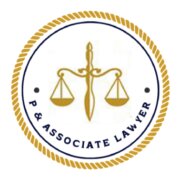About Aviation Law in Thailand
Aviation law in Thailand is a complex field encompassing both domestic regulations and international agreements. With the increase in air traffic and rapid growth of the aviation industry, the Thai government has developed comprehensive legal frameworks to manage air safety, regulate airlines, and oversee airport operations. The Civil Aviation Authority of Thailand (CAAT) is the primary body responsible for implementing aviation laws and ensuring compliance with international standards set by organizations like the International Civil Aviation Organization (ICAO).
Why You May Need a Lawyer
Legal assistance in aviation can be necessary for a variety of reasons. Common situations include disputes over flight cancellations, baggage claims, or delays, which may require a thorough understanding of passenger rights as per aviation laws. Airlines may also need legal services for regulatory compliance issues, licensing, or litigation concerning international aviation agreements. Additionally, aviation accidents, whether they involve commercial flights or private aircraft, often lead to complex investigations and claims that require expert legal help.
Local Laws Overview
Key aspects of local aviation laws in Thailand include the Air Navigation Act, which regulates airspace use and aircraft operations, and the Civil Aviation Authority of Thailand Act, which established the CAAT as the central regulatory authority. Thailand is also a signatory to the Tokyo, Montreal, and Warsaw Conventions, which address issues like in-flight offenses, damage to aircraft, and passenger compensation. Compliance with these laws is crucial for both domestic and international airlines operating in Thailand.
Frequently Asked Questions
What is the role of the Civil Aviation Authority of Thailand (CAAT)?
The CAAT is responsible for regulating and supervising civil aviation activities in Thailand, ensuring safety and compliance with international standards.
How can I file a passenger complaint regarding flight issues?
Passengers can file complaints directly with the airline or submit a grievance to the CAAT if issues remain unresolved.
What are my rights as an air passenger in Thailand?
Passengers have rights under Thai aviation law, including compensation for flight cancellations, delays, and lost or damaged baggage.
What actions should I take following an aviation accident?
Ensure immediate safety, seek medical attention, and contact legal professionals who specialize in aviation accident claims.
How can airlines maintain compliance with Thai aviation laws?
Airlines must adhere to CAAT regulations, keep up with international standards, and ensure timely renewal of licenses and certifications.
Is Thailand part of any international aviation agreement?
Yes, Thailand is a party to several international agreements, including the Tokyo, Montreal, and Warsaw Conventions.
Do I need a permit to operate a drone in Thailand?
Yes, operating drones requires obtaining permits from the CAAT to ensure safety and compliance with airspace regulations.
Can I claim compensation for flight delays in Thailand?
Compensation is possible under certain conditions, as per both local and international passenger rights regulations.
What should I know about airport security regulations in Thailand?
Airport security is stringent, with regulations on items allowed on flights and requirements for passenger identity verification.
How are flight paths regulated in Thailand?
Flight paths are regulated by the CAAT to ensure safety, manage airspace efficiently, and minimize environmental impacts.
Additional Resources
For more detailed information on aviation law and regulations, consider these resources:
- The Civil Aviation Authority of Thailand (CAAT) provides comprehensive information on regulatory requirements and guidelines.
- The International Civil Aviation Organization (ICAO) offers further insights into international aviation standards.
- The Ministry of Transport in Thailand can provide additional guidance on policies affecting aviation.
Next Steps
If you require legal assistance in aviation, start by identifying a law firm with experience in aviation issues. Contact the firm to discuss your situation and seek professional legal advice. It's also useful to gather all relevant documents, such as contracts, communication, and records of any incidents, to provide your lawyer with comprehensive information for assessment. Remember to check if the law firm is registered and has a good track record in handling aviation law matters.
Lawzana helps you find the best lawyers and law firms in Thailand through a curated and pre-screened list of qualified legal professionals. Our platform offers rankings and detailed profiles of attorneys and law firms, allowing you to compare based on practice areas, including Aviation, experience, and client feedback.
Each profile includes a description of the firm's areas of practice, client reviews, team members and partners, year of establishment, spoken languages, office locations, contact information, social media presence, and any published articles or resources. Most firms on our platform speak English and are experienced in both local and international legal matters.
Get a quote from top-rated law firms in Thailand — quickly, securely, and without unnecessary hassle.
Disclaimer:
The information provided on this page is for general informational purposes only and does not constitute legal advice. While we strive to ensure the accuracy and relevance of the content, legal information may change over time, and interpretations of the law can vary. You should always consult with a qualified legal professional for advice specific to your situation.
We disclaim all liability for actions taken or not taken based on the content of this page. If you believe any information is incorrect or outdated, please contact us, and we will review and update it where appropriate.
















